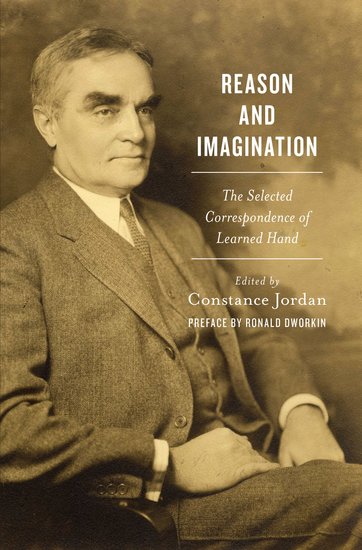Learned Hand (1872-1961) served on the United States District Court and is commonly thought to be the most influential justice never to serve on the Supreme Court. He corresponded with people in different walks of life, some who were among his friends and acquaintances, others who were strangers to him. In the letter below, Hand writes to Mary McKeon, a New Yorker troubled by Hand’s decision to invalidate the warrantless search and consequent arrest of the Soviet spy, Judith Coplon.

To Mary McKeon
December 28, 1950
Dear Miss McKeon:
I have your letter about the Coplon case and I can understand why you are troubled about the result; and because you were not abusive, I am going to try to explain it to you.
It is a rule — well settled by the decisions of the Supreme Court — that evidence which the Government secures by its own violation of law it may not use against the person whose rights have been invaded. An extreme example of this would be in case a United States marshal were to break into the house of an accused person and seize his papers; the Government would not be allowed to use the papers against the person whose house had been entered. The same thing is true of documents found upon the person of one who is unlawfully arrested as was Judith Coplon. That was one ground for the reversal. The other was that during the trial it became necessary for the Government to depend upon evidence which it was unwilling to let her see. The Constitution provides that a person accused of crime is entitled to have all witnesses, who are called against him, brought into court at the trial.
Thus in these two instances the rights of the accused were violated, which is entirely consistent with her guilt. Perhaps, if you reflect, you will agree that it is not desirable to convict people, even though guilty, if to do so it is necessary to violate those rules on which the liberty of all of us depends.
Truly yours,
Learned Hand
The letter above was excerpted from Reason and Imagination: The Selected Letters of Learned Hand, edited by Constance Jordan, a retired professor of comparative literature and also Hand’s granddaughter. In 1944, Coplon, who worked for the Foreign Agents Registration section, was recruited as a spy by the NKGB, i.e., the People’s Commissariat for State Security. In 1949, FBI agents detained Coplon as she met with Valentin Gubitchev, a KGB official employed by the United Nations, while carrying what she thought were secret U.S. government documents; in actuality, they were fakes, planted in her purse at the order of J. Edgar Hoover. Declared guilty of espionage by the United States District Court for the Southern District of New York in 1949, Coplon appealed to the United States Court of Appeals for the Second Circuit. In United States v. Coplon, in an opinion authored by Hand and announced on December 5th, her conviction was overturned.
Subscribe to the OUPblog via email or RSS.
Subscribe to only law articles on the OUPblog via email or RSS.
Image credit: Judge Learned Hand circa 1910. Public domain via Wikimedia Commons.




Recent Comments
There are currently no comments.